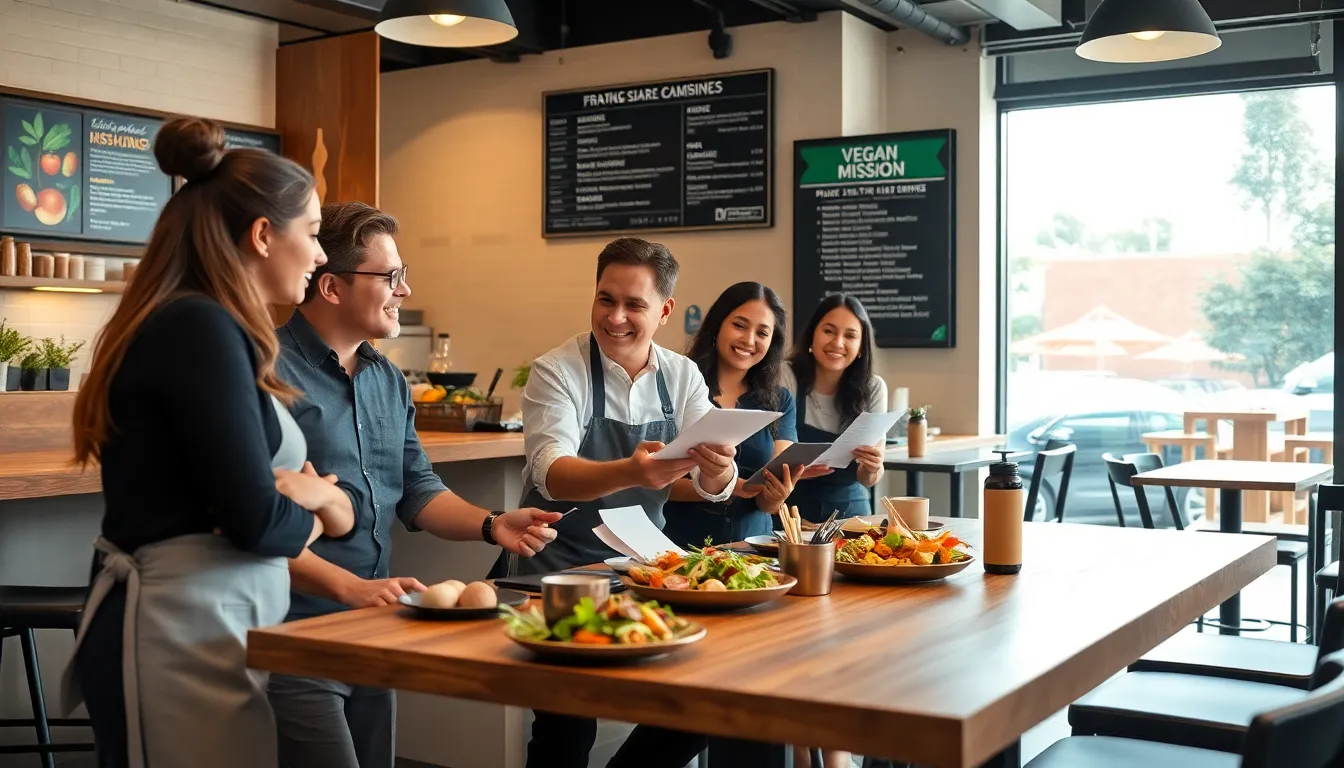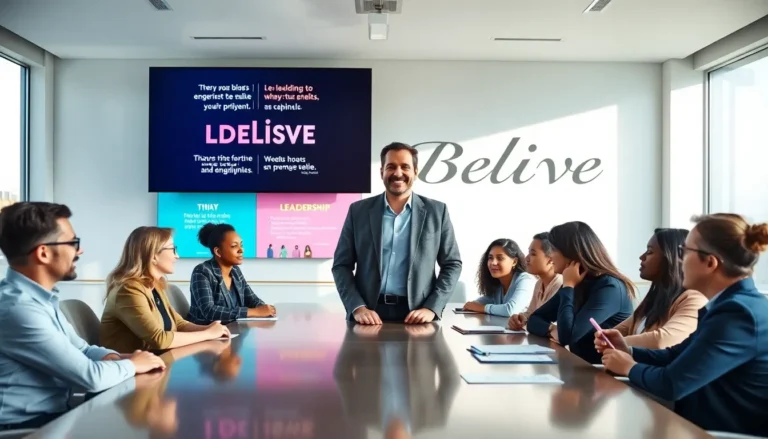Table of Contents
ToggleWhen it comes to running a restaurant, the fine line between chaos and order often boils down to leadership. Imagine trying to orchestrate a culinary symphony while ensuring customers are satisfied, staff are motivated, and dishes are delivered on time. Just like any chef knows the importance of high-quality ingredients, effective leadership is an essential spice in the restaurant mix. So, what can leaders in the food service industry learn to elevate their establishments? Buckle up as we jump into essential restaurant leadership lessons that not only help build a thriving workplace but might even turn a struggling eatery into the talk of the town.
The Importance of Vision in Restaurant Leadership

A strong vision acts as a guiding compass for restaurant leaders. It allows them to navigate through the bustling chaos of daily operations and keep their teams focused on a shared goal. Think of it as the secret sauce that adds flavor to the entire operation. Vision is not just about having a list of goals: it’s about articulating a compelling story that resonates with the staff and the customers alike. When everyone, from the kitchen staff to the servers, embraces that vision, the restaurant transforms into a cohesive unit working toward a common purpose.
For instance, a restaurant with a clear vision of becoming the go-to place for vegan cuisine not only attracts a specific clientele but also unites the team in creating innovative dishes that reflect that mission. This commitment to a clear purpose allows the restaurant to stand out in a crowded marketplace. Leaders who spend time defining, communicating, and embodying their vision foster an environment where employees feel a sense of belonging and pride in their contributions.
Building a Strong Team Culture
A restaurant is more than just a collection of staff: it’s a closely-knit family. Leaders need to cultivate a culture that promotes collaboration, respect, and enthusiasm. Imagine what happens when team members feel valued and engaged. That’s right: customer service skyrockets, and so does overall satisfaction.
Start by practicing inclusive leadership. When employees feel heard, they’re more likely to contribute ideas and solutions. Hold team-building exercises, not just for fun, but to strengthen relationships. Encourage open dialogue and celebrate wins, big or small.
For example, the renowned restaurant chain, Noma in Copenhagen, emphasizes a strong team culture by fostering a positive work-life balance, which translates into a high-quality dining experience for guests. This nurturing environment ensures that everyone feels appreciated and connected, eventually leading to higher staff retention and improved customer experiences.
Effective Communication Strategies
Effective communication is the lifeblood of any successful restaurant. It doesn’t just keep operations running smoothly: it builds trust and transparency. Leaders must master both upward and downward communication.
Start by ensuring that all messages are clear, concise, and actionable. Regular briefings and check-ins can keep everyone in sync. For instance, daily huddles can be instrumental in aligning the team on the day’s priorities and special menu items, while also offering a platform for raising concerns or suggestions.
Also, use tools like communication apps for quick updates or feedback. This keeps the communication lines open, allowing for quick adjustments on the floor during busy shifts. By creating a culture where feedback is welcomed, both from customers and staff, leaders set the stage for continuous improvement and innovation.
Managing Challenges and Adapting Strategies
Every restaurant will face challenges, whether it be staffing shortages, supply chain issues, or changing customer preferences. The key lies in how leaders respond to these hurdles. Effective managers don’t just react: they anticipate challenges and prepare adaptable strategies.
One effective approach is to develop a flexible menu that can adjust based on seasonal ingredients or changing customer preferences. This not only keeps the offerings fresh but also encourages staff creativity.
Also, embracing technology can help streamline operations. Consider using reservation systems, online ordering apps, or inventory management software to stay ahead of challenges. Adaptable leaders instill resilience in their teams, empowering them to face challenges with confidence rather than fear.
Learning from Mistakes and Successes
Mistakes are unavoidable in the restaurant industry: what matters is how leaders choose to learn from them. Embracing a culture of feedback can turn failures into valuable learning moments. Mistakes shouldn’t be shamed: instead, they should be analyzed collectively to improve future practices.
Recognizing success is equally important. Celebrate achievements to build morale and reinforce best practices. For example, if a new dish earns rave reviews, it’s worth celebrating not just with the chef but the entire team, acknowledging the hard work that went into it.
By fostering an environment where learning is prioritized, leaders encourage innovation and continuous improvement. Rest assured, this attitude will resonate with customers, as a restaurant’s evolution is often reflected in the experience it offers.
Investing in Continuous Training and Development
To ensure long-term success, restaurant leaders must invest in continuous training and development. The food industry is perpetually evolving: staying ahead means arming employees with the latest skills and knowledge. This could range from customer service training to culinary workshops or food safety certifications.
Leaders should offer opportunities for growth, whether through mentorship programs, workshops, or even attending industry conferences. Encouraging staff to learn and grow boosts their confidence and enhances their capabilities. Well-trained employees are more likely to take pride in their work, leading to a better overall customer experience.
Also, adapting training to accommodate employee preferences, like utilizing mobile learning platforms, can make the process enjoyable, fostering a culture that values ongoing education.





